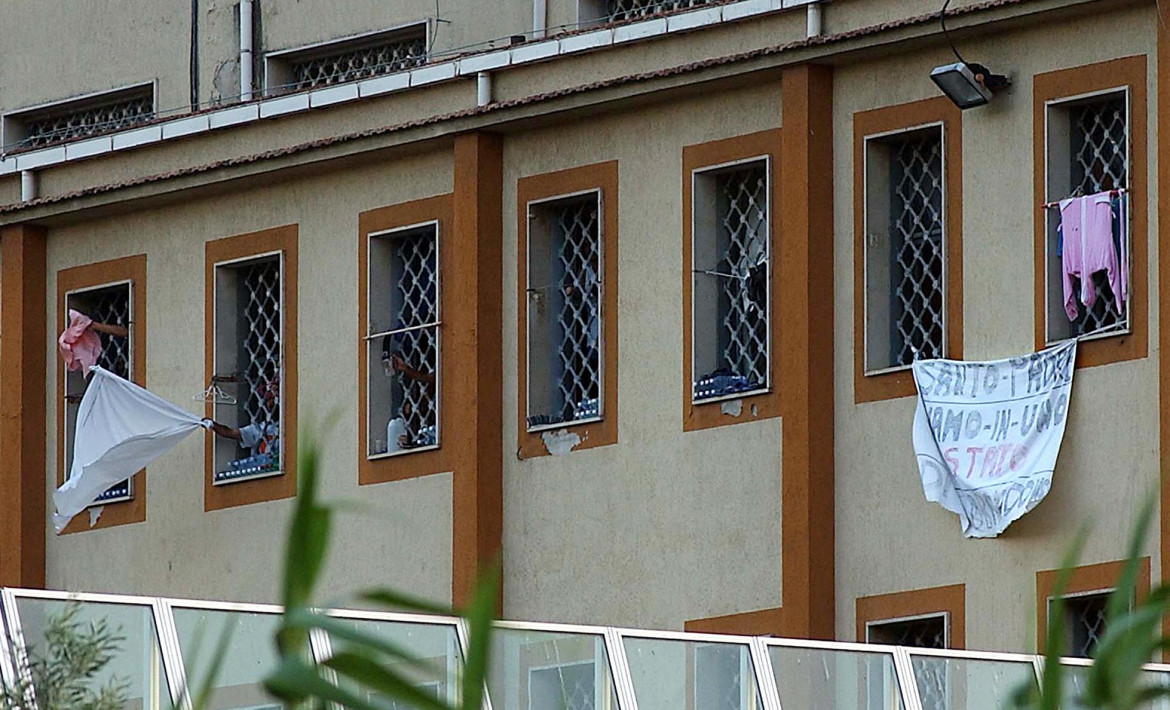Reportage
Prison in Italy is a death sentence for dozens every year
Italian prisons have turned into hellish places, both for those who have to serve their sentence there and for those who work there. And the high temperatures are making the situation even more difficult.

People keep dying in Italian prisons. After the 27-year-old young man who took his own life on July 27 at the Prato correctional facility, on July 30 another young man, 25 years old and awaiting trial, hanged himself in an isolation cell at the Rieti prison, where he had been confined after he had refused to return to his cell, together with other inmates, in a protest against overcrowding.
According to statistics, this was the 61st suicide since the beginning of the year – a number which only gives a very limited perspective on the dramatic experience of tens of thousands of inmates in Italian prisons.
“I don't keep count anymore: there are too many, anyway, and there’s another (almost) every day,” Lazio's Guarantor of Prisoners, Stefano Anastasia, told us sorrowfully. “Each case is particular in itself, but taken all together, they give a snapshot of the crisis of a system that is failing to guarantee the constitutional principles of humane detention and support for the social reintegration of convicted persons.”
Meanwhile, on July 31, after a vote in the Justice Committee, which the opposition forces boycotted in protest, the Prisons Decree was set to arrive on the Senate floor. The vote was scheduled for Aug. 1, with the government almost certain to ask for a confidence vote.
Justice Minister Carlo Nordio stressed that he had boosted staffing in prisons, hiring more educators, accounting officers and cultural mediators – however, these measures do nothing to address the most serious causes of the crisis: overcrowding, with 14,500 more inmates than the number of available places, and a shortage of at least 18,000 corrections officers compared to staffing needs.
As a result, prisons have turned into hellish places, both for those who have to serve their sentence there and for those who work there. And the recent high temperatures are making the situation even more difficult. Fights, acts of self-harm, protests, even outright riots are now the order of the day. In the Rieti prison, where the latest suicide was recorded on July 30, 400 inmates took over their block for two days and two nights before ending their protest. That same day, in Cuneo, three inmates were injured due to smoke inhalation from a fire caused by disturbances that broke out in the prison’s lower-security section.
The unions have been among the first to demand government intervention: “Minister Nordio should say what he intends to do in concrete terms to stop the de facto random death penalty that is constantly being inflicted in our country,” said the secretary general of the UILPA Penitentiary Police union, Gennarino De Fazio. A first step could be the release of the nearly 8,000 inmates who have less than one year left on their sentence. This was the proposal at the core of a bill presented by +Europa, while the Order of Lawyers of Rome wrote an open letter to President Sergio Mattarella asking him to intervene, urging the political class to put an end to “an intolerable situation, unworthy of a civilized country.”
Meanwhile, the government and majority are preparing to shove the Prisons Decree through. The Senate Justice Committee voted to complete the last formalities, so that the text would arrive for a floor debate at Palazzo Madama. The opposition forces did not participate in the vote, in protest against the whole process and reserving the right to resubmit all amendments during the floor. No surprises are expected regarding the government's decision to call for a confidence vote in the final round of voting, scheduled for Aug. 1.
“This is yet another government measure in which the internal tensions of the majority are spilling over into Parliament,” commented the vice-president of the PD senators’ group, Beatrice Lorenzin. “This decree does not address the structural problems of Italian prisons: staffing, infrastructure and overcrowding,” she continued. ”We are a long way from solving the great issue of the health of the prison population, as well as that of the people who should not be in prison because they are suffering from psychiatric disorders.”
Originally published at https://ilmanifesto.it/inferno-carceri-a-rieti-un-altro-suicidio-e-il-n-61 on 2024-07-31
